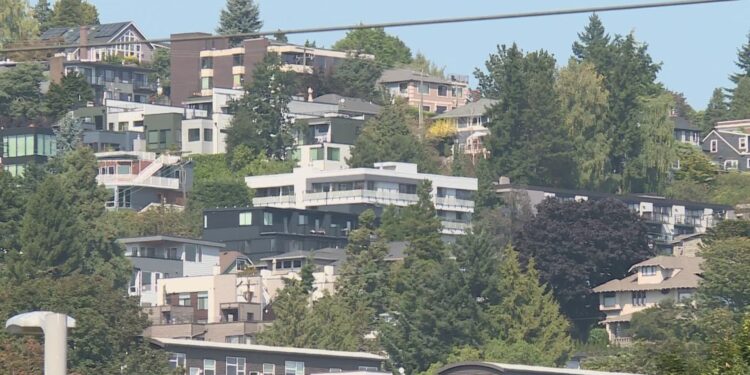Seattle Mayor Bruce Harrell announced a $170 million affordable housing investment on Monday, marking the largest single-year commitment in the city’s history as officials confront a severe housing shortage requiring more than 100,000 new units by 2040.
The funding will support construction, preservation, and for the first time, financial stabilisation of at-risk affordable properties across Seattle. The initiative addresses a critical gap in housing policy by preventing the loss of existing affordable units threatened by rising operational costs.
“It’s a significant investment really meeting the moment we’re in,” said Patience Malaba, executive director of the Housing Development Consortium of Seattle-King County. The organisation estimates King County needs 309,000 homes by 2040, with 112,000 required in Seattle alone.
The Notice of Funding Availability prioritises two key populations: people experiencing homelessness transitioning to permanent housing, and families earning at or below 30 per cent of area median income, approximately $36,000 annually for a household.
Malaba emphasised that preservation efforts have been historically underfunded whilst existing affordable housing faces mounting pressures from increased insurance, staffing, and security costs. The stabilisation component aims to prevent affordable properties from converting to market rate or falling into disrepair due to financial constraints.
Since taking office, Harrell’s administration has committed more than $1 billion to affordable housing initiatives. “An affordable home provides stability, security, and the foundation to grow and thrive,” Harrell stated. “This investment will create additional affordable homes and maintain existing ones.”
The funding mechanism requires developers to demonstrate project readiness, location viability, and clear benefits to underserved populations. Applications are due by September 18, with the city’s Office of Housing overseeing the allocation process.
The record investment reflects Seattle’s acknowledgement that both new construction and preservation of existing stock are essential to address the housing crisis. Rising construction costs and limited available land have made new affordable housing increasingly expensive, making preservation of existing units a cost-effective strategy.
The initiative represents a shift toward comprehensive housing policy that addresses both supply creation and retention, recognising that losing existing affordable units undermines progress made through new construction efforts.







